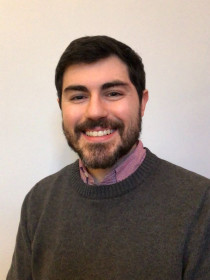
Ryan LaRochelle
Connect with Ryan
About Ryan
LaRochelle's research focuses on focuses on American political development, social policy, and the welfare state. His current project explores the political and policymaking legacies of Lyndon Johnson’s Great Society, placing the domestic reform efforts of the 1960s in the broad arc of postwar American political development.
Contributions
In the News
Publications
Examines the rise of block-granting as a tool of social policy retrenchment since the 1980s. Shows how several aspects of block grants' designs leave them vulnerable to deferred policy maintenance, which leads to gradual erosion. Argues that block grant design limits the potential for self-reinforcing or positive feedbacks, thus making these programs vulnerable to further retrenchment. Shows how the decentralized nature of block grants works to increase inequality across the states.
Reassessed the early history of the Community Action Program. Draws on an original dataset of 98 community action agencies. Argues that the program was a bold experiment in administrative reform that launched a range of diverse anti-poverty initiatives that were tailored to local circumstance and community needs.